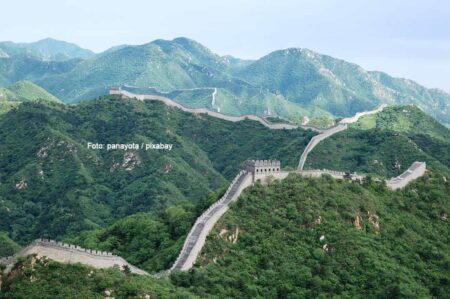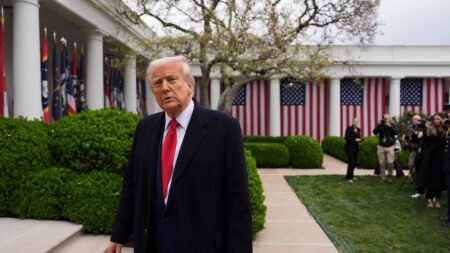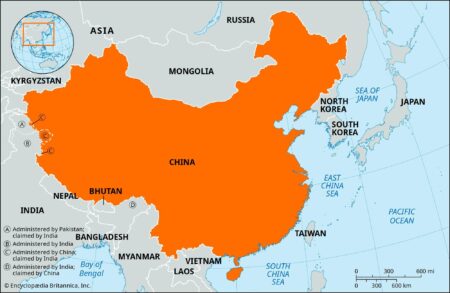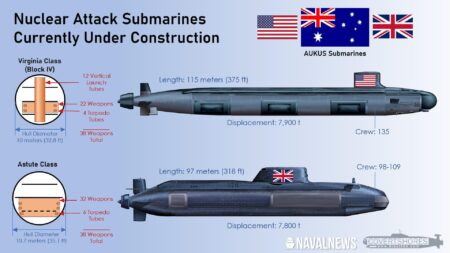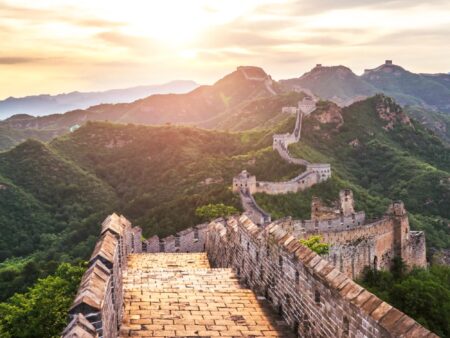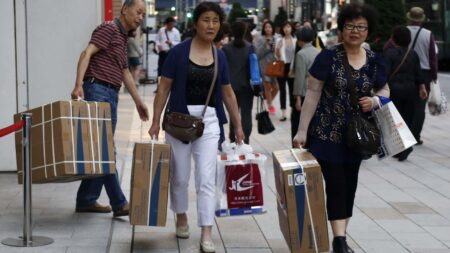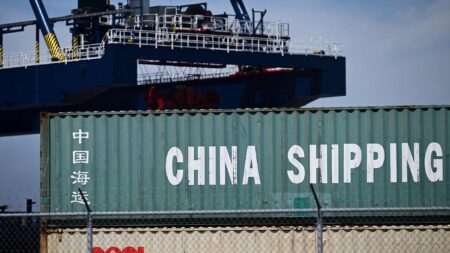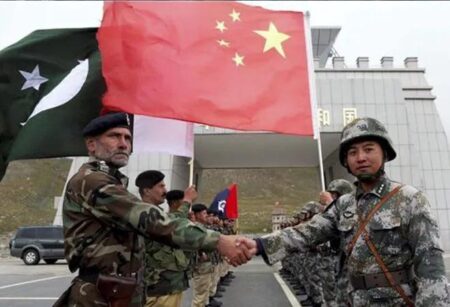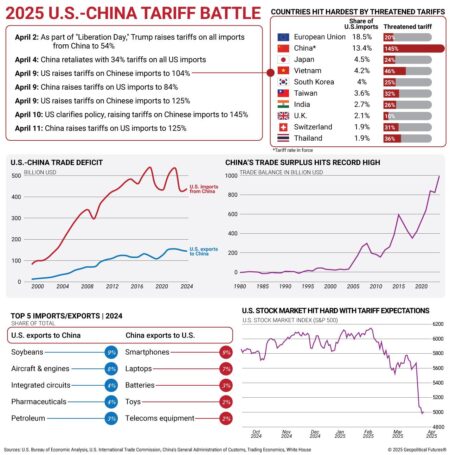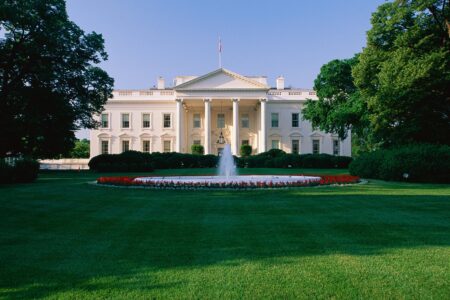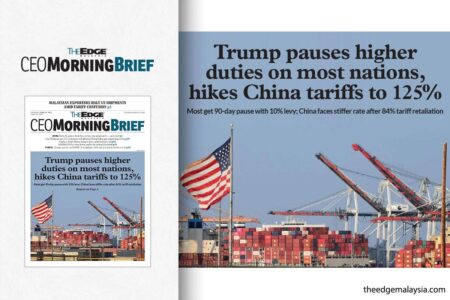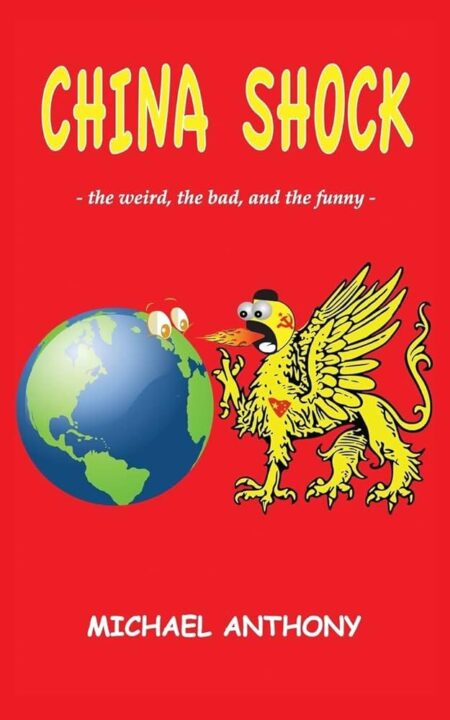Tesla has halted new orders for two imported, US-made models in China, as reported by Reuters. This move reflects ongoing challenges in the Chinese market, where competition and regulatory pressures continue to intensify for the electric vehicle manufacturer.
Browsing: China
In a recent decision, the Biden administration announced that phones and computers will be exempt from the proposed 125% tariffs on Chinese imports initially suggested by former President Trump. This move aims to alleviate pressure on consumers and tech companies.
Central bank deputies from China, Japan, and South Korea convened to discuss the implications of U.S. tariffs on their economies. The meeting, reported by Reuters, highlights growing concerns over trade tensions and their potential impact on regional stability.
In a recent CNN feature, Fareed Zakaria delves into the steadfast Chinese mentality during the ongoing trade war, emphasizing a cultural ethos that prioritizes resilience and perseverance. He argues that this mindset shapes China’s approach to negotiations and conflict resolution.
Former President Donald Trump claimed that his tariff policy is “doing really well,” following China’s imposition of a 125% levy on U.S. goods. His comments come amid escalating trade tensions, as both nations grapple with the implications for their economies.
The Chinese Embassy in India has urged both nations to unite against U.S. tariffs, emphasizing the need for collaboration in facing economic challenges. This call for solidarity comes amidst escalating trade tensions between the U.S. and China.
Australia faces unexpected challenges in its AUKUS submarine deal, as logistical hurdles and rising costs threaten to derail the ambitious project. Analysts warn that the complexities of this defense partnership could impact national security plans.
Apple, Nvidia, and Microsoft can ‘breathe a huge sigh of relief’ following the recent exemption from tariffs on key products imported from China. This development is expected to stabilize supply chains and boost profitability for these tech giants.
As tensions escalate in the ongoing trade conflict, experts weigh in on whether China can withstand a prolonged U.S. tariff war. With its vast manufacturing base and strategic economic measures, Beijing may have tools to mitigate the impact.
Ukrainian President Volodymyr Zelensky announced that intelligence agencies have identified 155 Chinese citizens fighting alongside Russian forces. This revelation raises concerns over foreign involvement in the ongoing conflict amid heightened geopolitical tensions.
China and Japan engaged in discussions regarding Japan’s seafood import ban amid concerns over contamination from the Fukushima nuclear plant. Both nations aim to address trade tensions and restore confidence in seafood safety standards.
In a surprising twist amid ongoing trade tensions, experts suggest that Donald Trump’s tariff war with China could lead to lower prices for Australians on Chinese-made goods. With tariffs affecting American imports, Australian consumers might benefit as costs adjust.
In response to escalating trade tensions, China’s leading retail giants have committed to supporting local exporters in shifting their focus to domestic markets. This initiative aims to bolster the economy and mitigate the impact of ongoing trade disputes.
Spain’s Prime Minister Pedro Sanchez urged the European Union to reevaluate its relationship with China, emphasizing the need for a more unified approach in addressing economic and geopolitical challenges posed by Beijing.
US officials have voiced concerns over increasing military cooperation between China, North Korea, and Russia, warning that their collaboration poses significant threats in the Pacific region. The alert underscores escalating tensions among global powers.
As the US-China tariff battle escalates, analysts are increasingly scrutinizing former President Trump’s endgame. With tariffs impacting trade dynamics and consumer prices, the long-term implications for both economies remain uncertain as negotiations continue to stall.
In a bid to mitigate escalating tensions in the ongoing trade war, the White House is reportedly urging Chinese President Xi Jinping to reach out to former President Donald Trump. The call aims to explore potential solutions as tariffs and trade barriers intensify.
China has retaliated against President Trump’s latest tariff hike by imposing duties of up to 125% on a range of U.S. goods. This escalation in trade tensions signals a deepening rift between the two economic giants, impacting global markets.
The “China Shock,” a term describing the economic impact of China’s rise on American jobs, reveals critical lessons about globalization and labor. Contrary to President Trump’s interpretation, experts argue that understanding these dynamics is essential for future policy success.
In response to rising tensions over trade, Deputy Prime Minister Richard Marles has affirmed that Australia will not collaborate with China to counter former President Donald Trump’s tariffs. Marles emphasized Australia’s commitment to maintaining its own trade policies.



